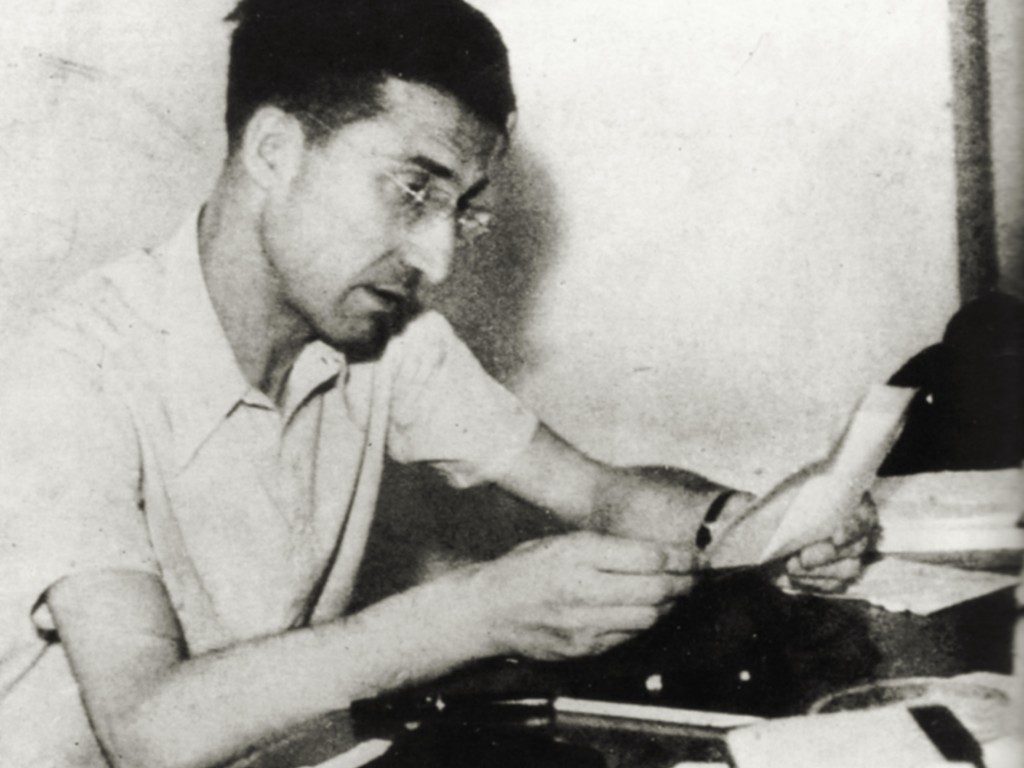Cesare Pavese (1908-1950) is another soul that belongs in our cosy anthology. Pavese grew up in Nietzsche’s Turin, graduated on a thesis about poet Walt Whitman and was placed under house arrest in Brancaleone Calabro, in the south of Italy after the Mussolini regime discovered he had received letters from a jailed anti-fascist. Today’s poem is a reflection about this. I find an elegant translation of a poem written in 1935, by Geoffrey Brock:
Words from Confinement
We would go down to the fish market early
to cleanse our vision: the fish were silver,
and scarlet, and green, and the color of sea.
The fish were lovelier than even the sea
with its silvery scales. We thought of return.Lovely too the women with jars on their heads,
olive-brown clay, shaped softly like thighs:
we each thought of our women, their voices,
their laughs, the way they walked down the street.
And each of us laughed. And it rained on the sea.In vineyards that cling to cracks in the earth,
water softens the leaves and the grape-stems. The sky
is colored by occasional clouds that redden
with pleasure and sun. On earth, flavors and smells;
in the sky, color. And we were alone there.We thought of return the way a man thinks
of morning after an utterly sleepless night.
We took pleasure in the color of fish and the glisten
of fruit, all so alive in the musk of the sea.
We were drunk on the thought of impending return.
In the second stanza it becomes clear that ‘we’ is a group of buddies, walking over to the fish market in the morning to enjoy the colors. They ‘cleanse their vision’, regain a proper perspective on their situation in confinement. I like the imagery of the women with the jars shaped like thighs. The men seem to be momentarily satisfied with the memory of their wives. The fact that it rained on the sea, pioveva sul mare, is perhaps a metaphor for the way they remember: laughing, without melancholy.
The next stanza offers some powerful imagery. Pavese called his poetry “an attempt to express a cluster of fantastic associations, of which one’s own perception of reality consists, with a sufficient wholeness.” I like that. The place of confinement seems to have become an orgasm of colors, flavors, smells, yet they are alone there, Nessuno con noi…
The final stanza that must redeem the ideas laid out here disappoints a little in English rendition. The above pleasure is repeated, making it boring. What really keeps the ‘we’ going is not the wonderful smells and flavors and colors, but the thought of impending return. And that sounds like this in Italian:
Si godeva il colore dei pesci e l’umore
delle frutta, vivaci nel tanfo del mare.
Ubriachi eravamo, nel ritorno imminente.
